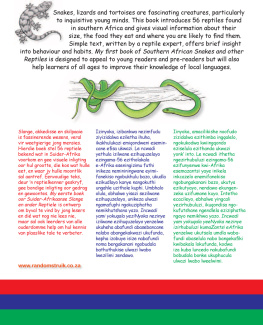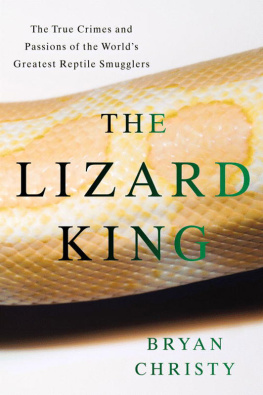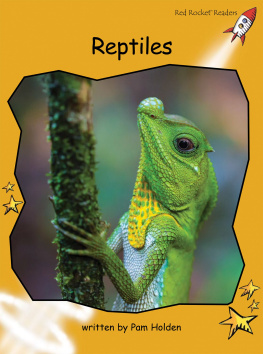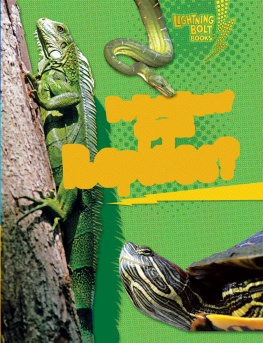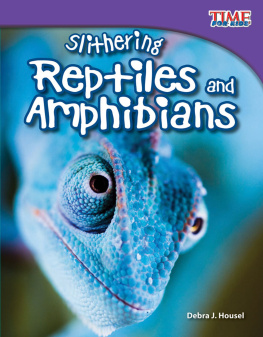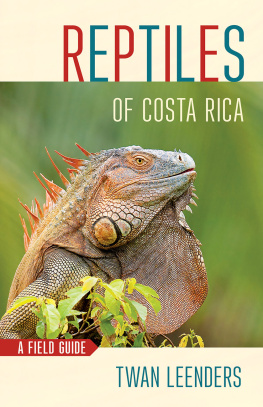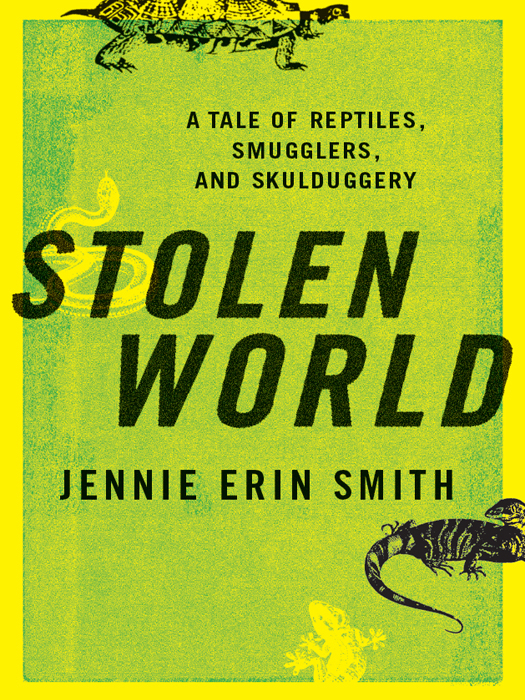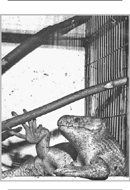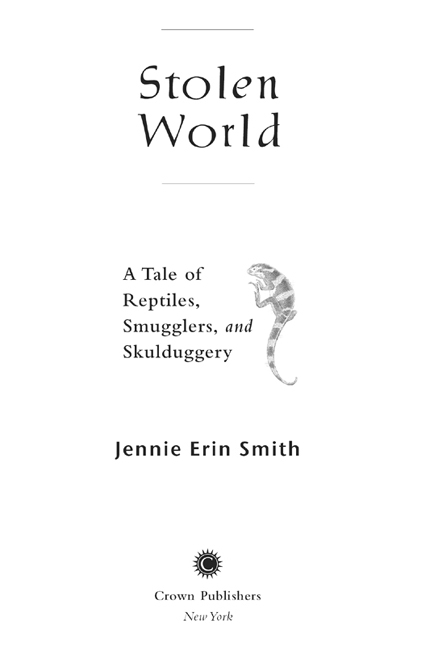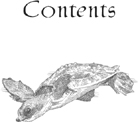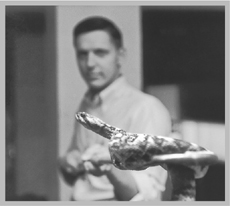All rights reserved.
Published in the United States by Crown Publishers, an imprint of the Crown Publishing Group, a division of Random House, Inc., New York. www.crownpublishing.com
CROWN and the Crown colophon are registered trademarks of Random House, Inc.
For my late grandfather Joseph McGrath, the most devout reader I have ever known and whose Times clippings we still miss. And for my late grandmother Frances Smith, who liked her stories a little on the rough side.
This book is derived from interviews, court records, and published and unpublished documents. Nearly all quotations derive from interviews; a very small number are derived from sworn testimony. All names are real save for three: Benjamin Bucks, Stefan Schwarz, and Karl Sorensen, which are pseudonyms.
 Part I
Part I
The Kraftsman


The reptile vendors stood at their convention tables and kept watch over their stacks of deli cupsthe same clear, covered plastic containers used at grocery stores to dole out olives or cream cheese. The cups were punched neatly through with air holes, and each contained a baby snake or lizard.
It was August 1996, and the National Reptile Breeders Expo had just opened. Spread out through several ballrooms of an Orlando hotel, vendors displayed their deli cups under canvas signs bearing curious, vaguely propagandistic slogans: Conservation thru Commercialization, Assured Survival Through Applied Scientific Economics. Almost all were men; at least half of them wore a tattoo, a ponytail, or a T-shirt bearing a reptile design, and some had all of the above.
The hobby of keeping reptiles, once obscure, was growing very fast, and it had a new name: herpetoculture. It sounded like herpetology, but you needed a Ph.D. to be a herpetologist. If you woke up to find your pet snake had laid eggs, you were a herpetoculturist. The vendors were breeding reptiles for unusual colors, or mutations like albinism, and such manipulations only increased the animals value. Years before, the vendors said, they had relied on importers and smugglers to bring them rare and wonderful reptiles from abroad. Now, thanks to herpetoculture, they simply created their rarities at home, reptiles that were just as valuable, yet perfectly legal. Better still, they said, theyd by now bred so many species that they were saving endangered reptiles from extinction.
It was all very noble sounding, except that only a few weeks before, the New York Times had run a front-page story about plowshare tortoises, a species said to be on the very precipice of extinction, stolen from a special breeding facility in Madagascar that had been set up to save them. The story implied that some of the missing tortoises could turn up at this expo in Orlando. And three days before the expo, federal wildlife agents had arrested a German for possessing sixty-one smuggled snakes and four tortoises, not plowshares but Madagascar species nonetheless, at a diner in Bushnell, Florida, an hour away.
Who was the German supposed to meet in Bushnell? The agents wouldnt say, but the reptile vendors all knew.
Only one reptile dealer lived in Bushnell, Florida. His name was Tom Crutchfield. At the expo, Crutchfield had the showiest booth and the slickest signs and some of the best animals. Next to his table were two albino iguanashandsome, motionless ghostspriced at $75,000 for the pair. Crutchfield was short, thickly built, and mustachioed, and looked extraordinarily testy.
The U.S. Fish and Wildlife agents were closing in on something larger than a single German, and everyone seemed to know it.
The owner of the expo, a Florida native named Wayne Hill, was in good spirits despite the fuss, and invited me up to his penthouse suite to talk. Flanked by half a dozen of his associates, Hill reclined on the couch and pontificated about the reptile business, and how it had gotten so big.
Wayne Hill was a retired petroleum engineer, and had spent some years in Saudi Arabia. He was an oil man, but above all a reptile man, and there in the desert, he said, hed had a visionlike Jesus and Moses before him.
This speech had the marks of one delivered many, many times, but Hills friends leaned in anyway. In the desert, Hill said, he envisioned a forum where reptile breeders could freely trade their live animals. Before the first of his reptile expos, he explained, the reptile dealers had been confined to selling their animals at zoo and science symposiums, until a backlash against the animal trade caused them to feel unwelcome. Hill encouraged the animal dealers to abandon these conventions, and he started one just for them, in 1990, at a Howard Johnsons in Orlando. And now, six years later, here we were. At a much bigger hotel. Why did the New York Times think the plowshare tortoises would show up here? I asked Hill. Now Hill sounded mad. Someone hostile to the trade must have planted the idea, he said, a zoo person or an animal-rights Nazi. After that, I didnt bother asking Hill about the German or Tom Crutchfield, or why this brave new reptile-breeding industry, where snakes emerged from sterile containers like Aldous Huxleys fetuses, would have any more use for smugglers.
But then, weirdly, Hill pointed me to a smuggler he said he was very fond of, a smuggler without whom, he said, a great many of these species wouldnt be in Orlando at all.
I found Hank Molt a day later, just where Wayne Hill said hed be, alone at a table by the pool. It was late afternoon. I cant remember if Molt had a Heineken in his hand, but in the years that followed I would seldom see him in such settings without one.








